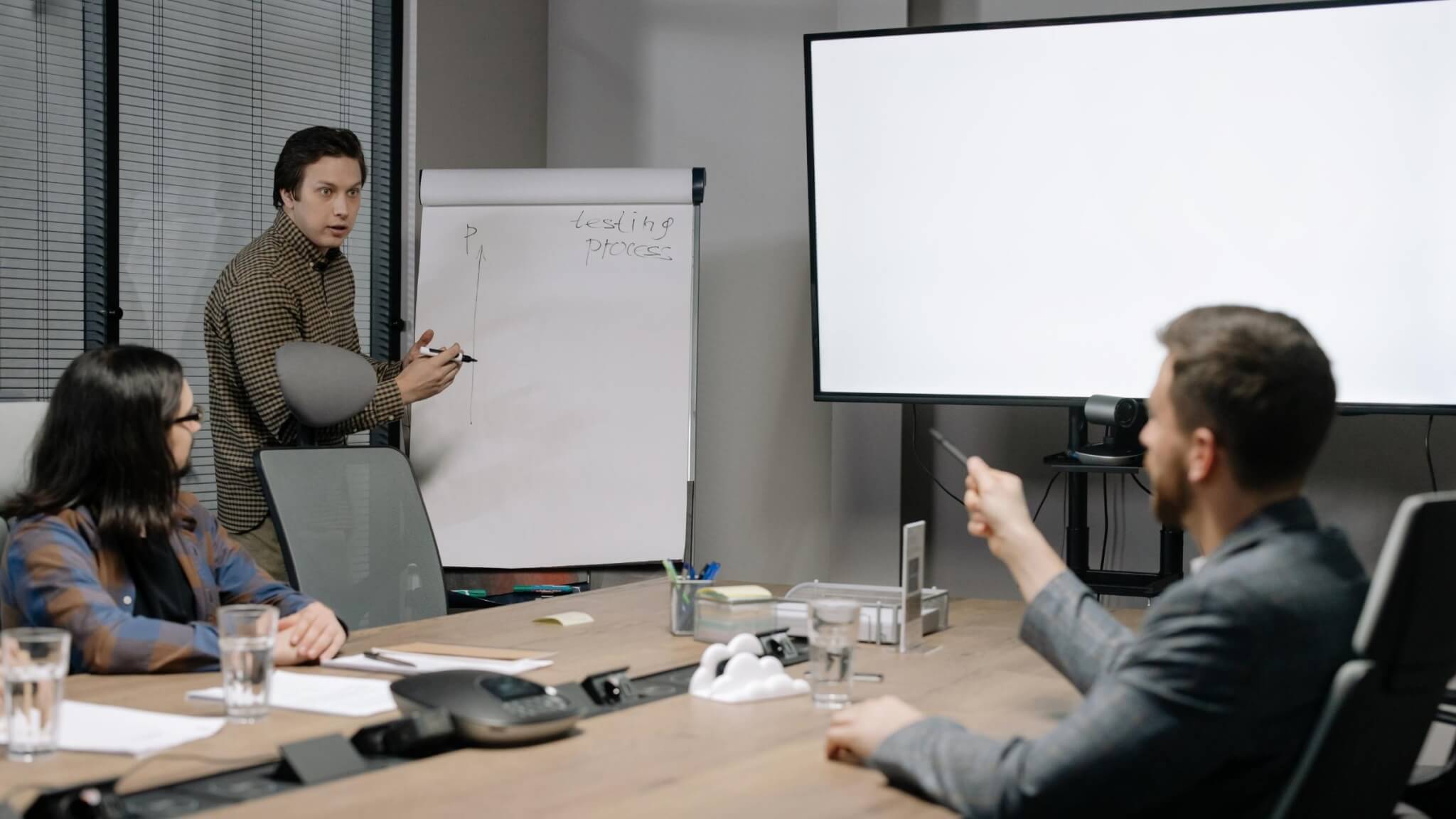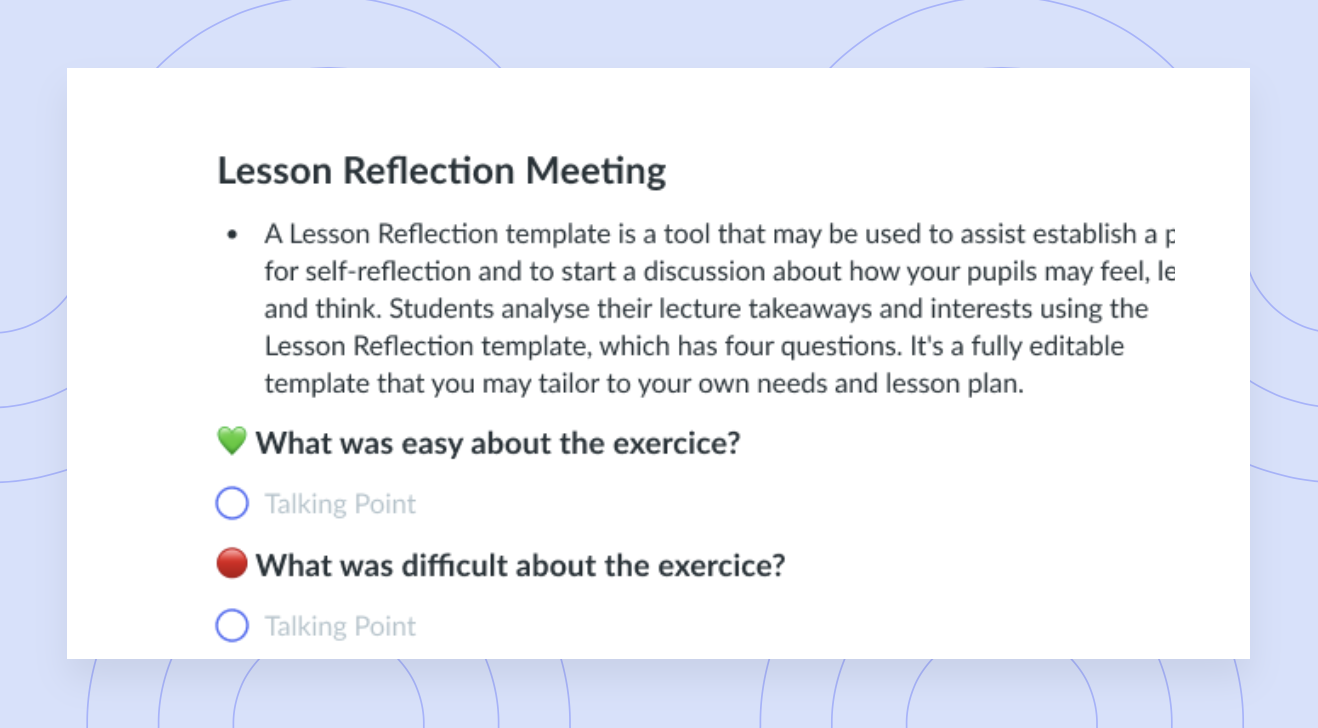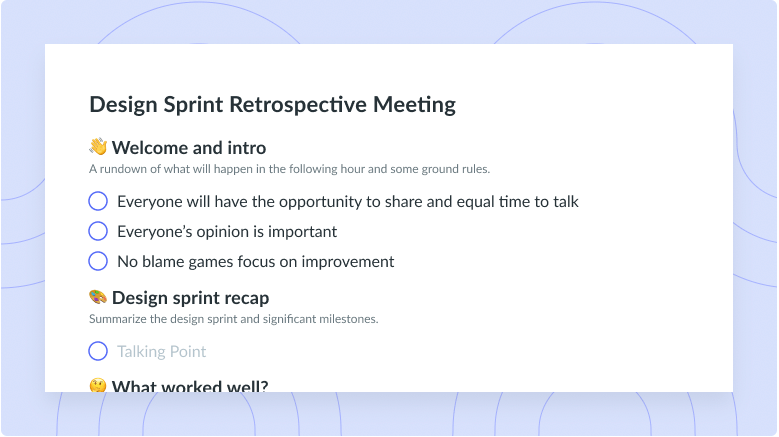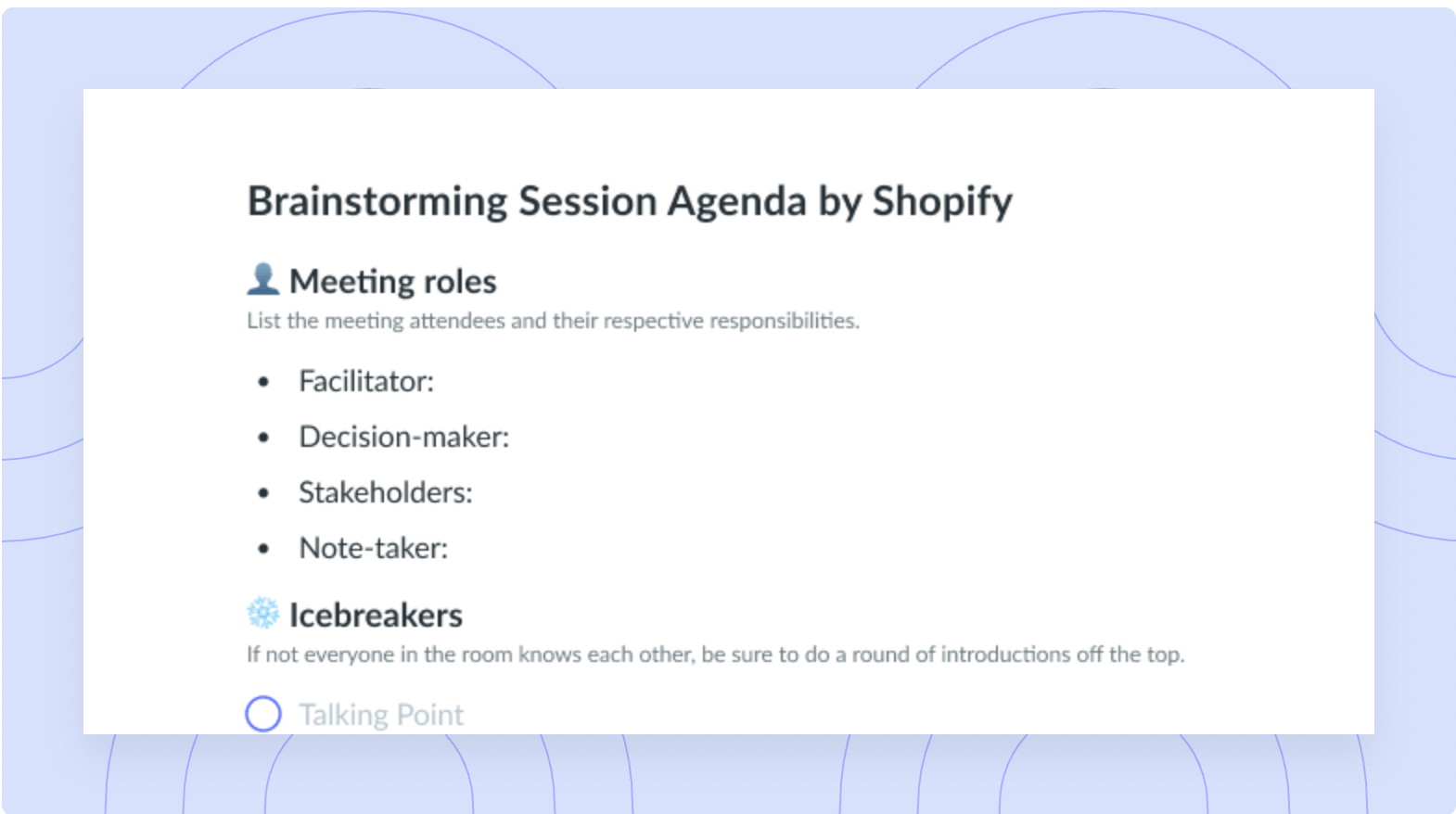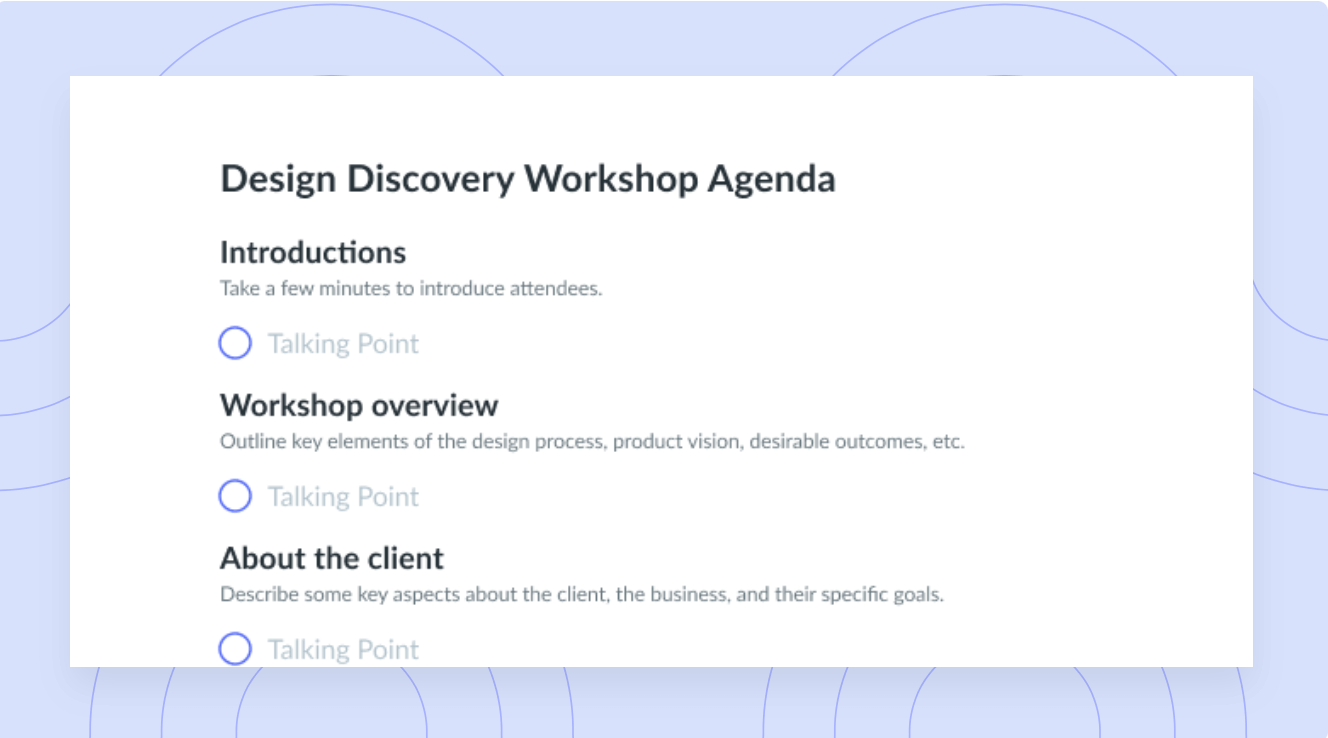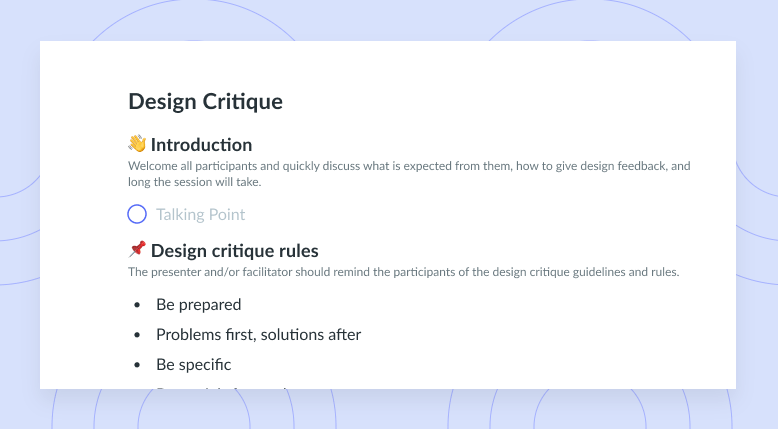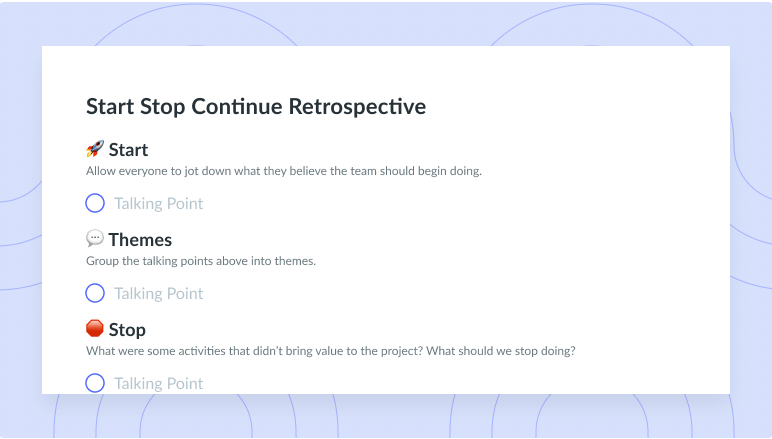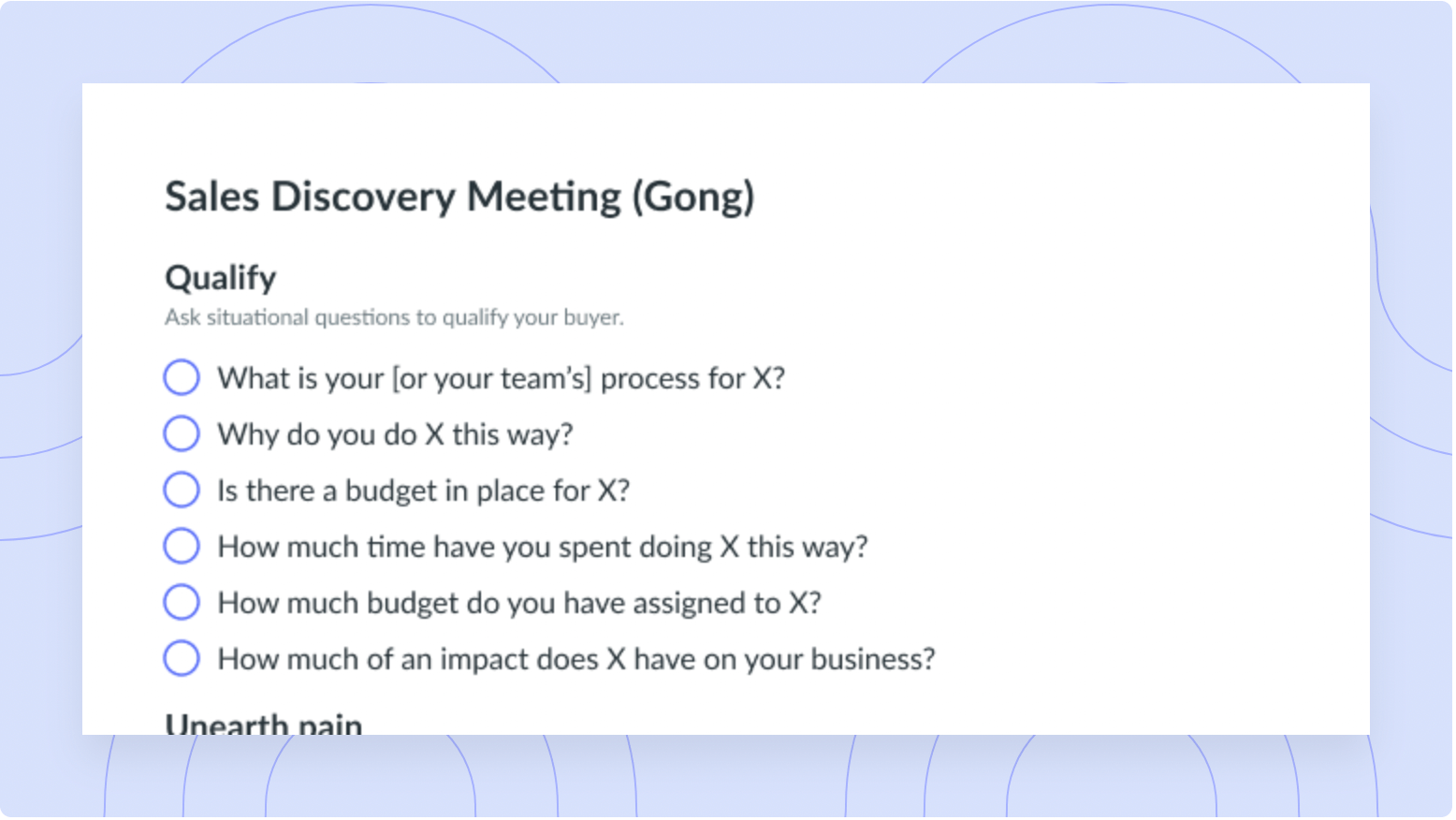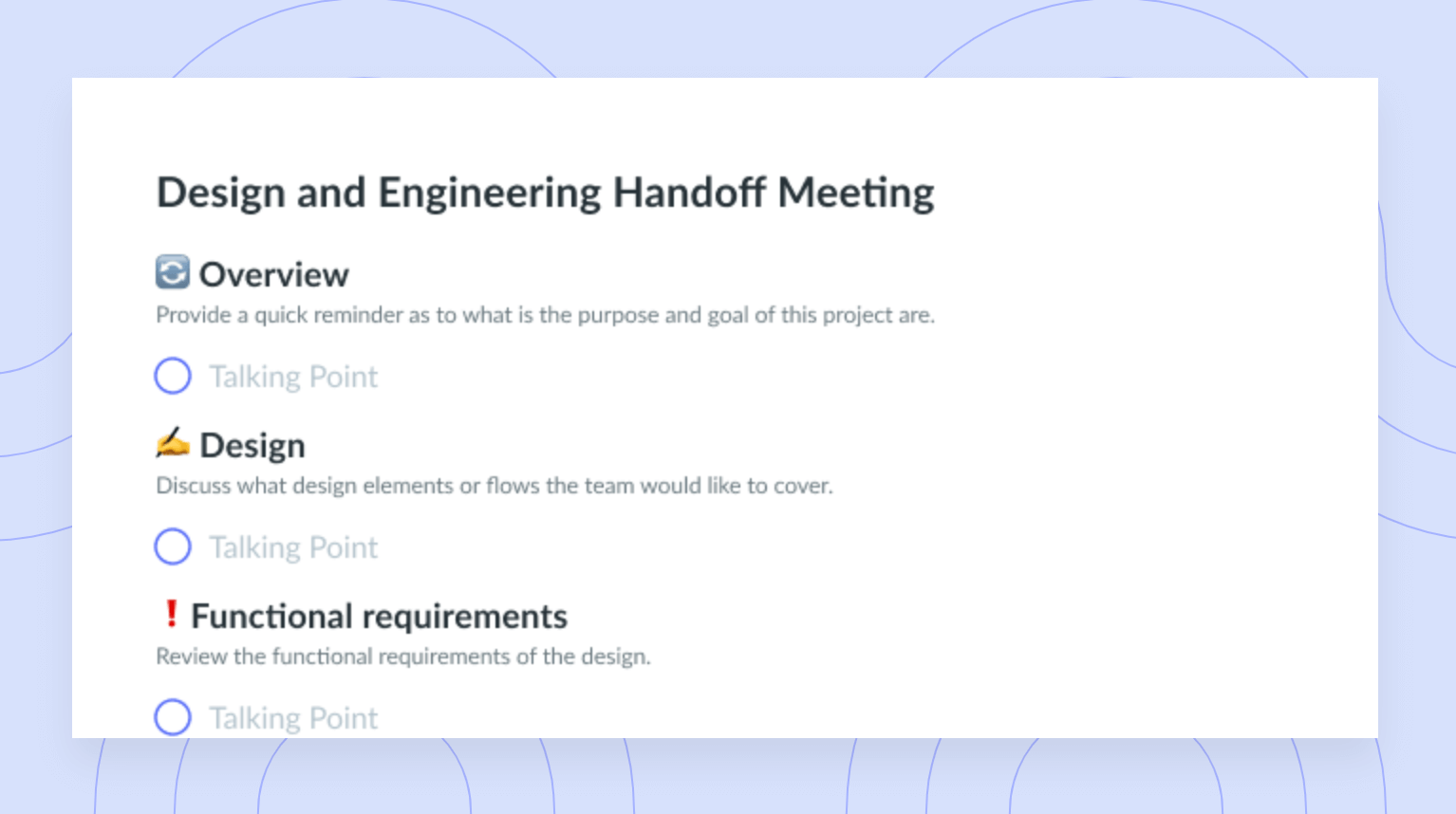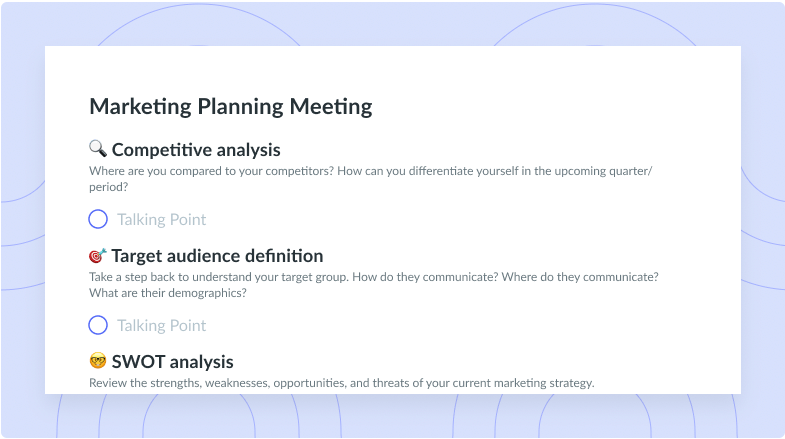A Guide to Workshop Facilitation: Techniques, Tips & Best Practices
Workshops can help your team perfect its communication and collaboration. Learn some workshop facilitation techniques, tips, and practices.
You’ve been chosen to facilitate a workshop at your organization – congrats! While this is exciting and it means your boss notices your efforts, planning a workshop can also be challenging. The below workshop facilitation techniques can help you design engaging, effective, and productive workshops that lead to better collaboration.
- What makes a good workshop?
- Pre-workshop facilitation techniques
- Facilitation techniques during the workshop
- Post-workshop facilitation techniques
What makes a good workshop?
A good workshop focuses on decision-making and problem-solving. You’ll need a few tools and skills to guide your team down the right path. Here’s how to design a great workshop.
- Setting clear goals
- Writing an agenda that engages everyone
- Monitoring the workshop method
- A facilitator that guides the workshop but doesn’t participate
1Setting clear goals
As you build your workshop, figure out your goals and what they’ll look like once you’ve reached them. A meaningful goal is measurable and specific enough to know when you reached it. Creating SMART goals is a great idea here.
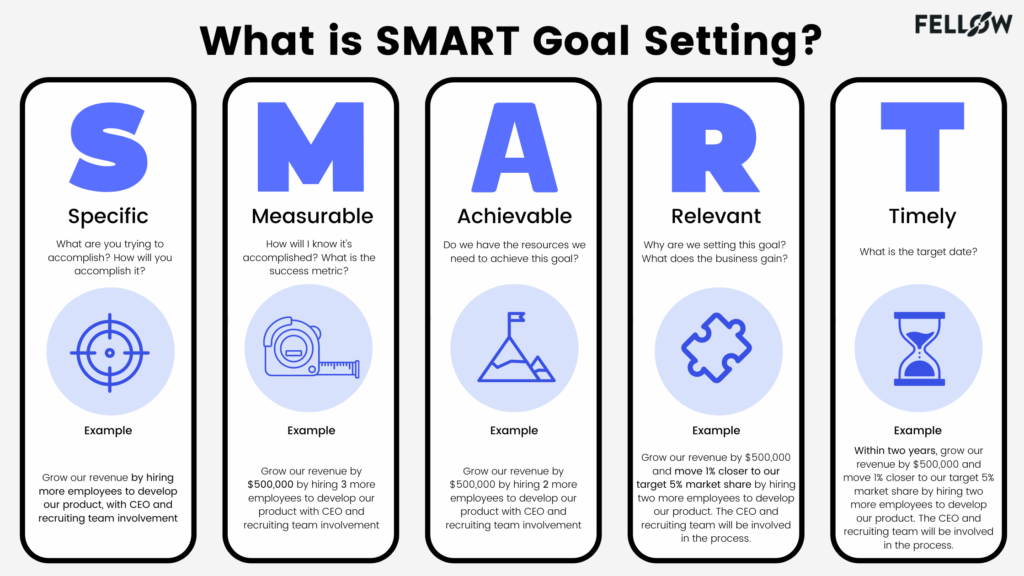
2Writing an agenda that engages everyone
You want to design your workshop agenda (a meeting agenda for workshops) to keep all your participants engaged. This means including activities that involve and challenge the whole team. These activities should help your participants reach your goals and match their interests and personalities.

Run efficient meetings, come to a decision, and get back to work
Level up your meeting habits to boost engagement and productivity with a collaborative meeting agenda. Try a tool like Fellow!
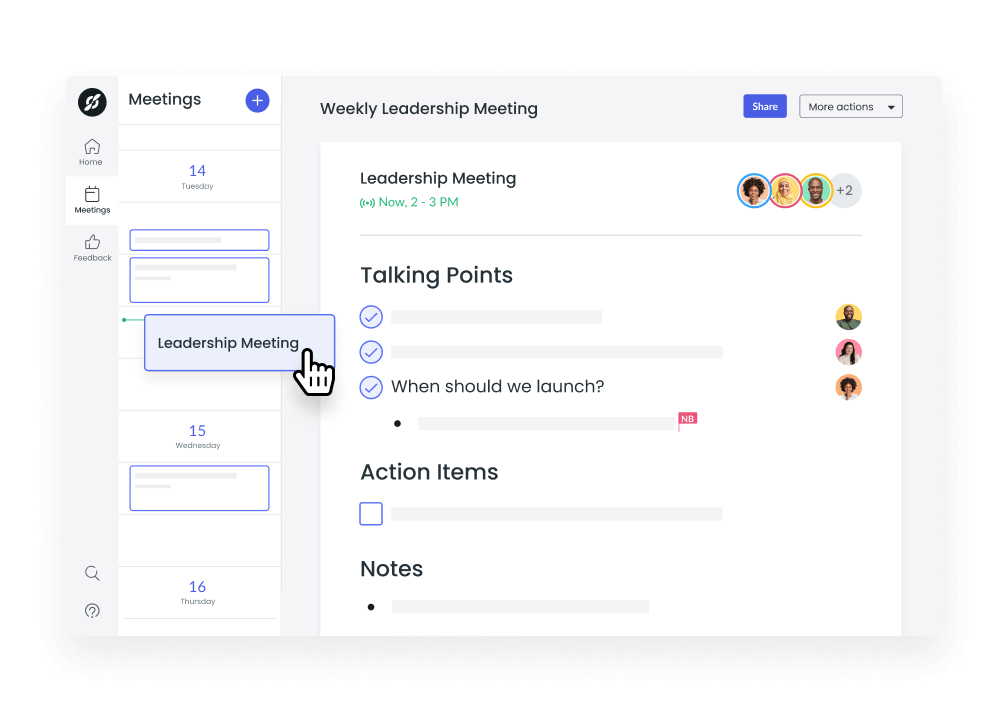
3Monitoring the workshop method
You should constantly monitor how you’re running your workshop to see whether you’re achieving your goals. If you see that something in your process isn’t working, try different exercises and activities instead.
4A facilitator that guides the workshop but doesn’t participate
A good facilitator will plan and guide your team through the workshop without actually participating. They’ll select the right tools and exercises for each participant to reach their goals during the workshop. They’ll also watch over the team so that everyone can get through the workshop without the clock running over.
Pre-workshop facilitation techniques
Before jumping head-first into hosting your first workshop, you’ll need to do some prep work so that everything runs smoothly. Here are some pre-workshop facilitation techniques you can try.
- Learn more about the participants
- Decide why you’re hosting a workshop and set a goal
- Plan the process ahead of time
- Prepare (and plan) for the unexpected
1Learn more about the participants
When organizing a workshop, the first thing you should do beforehand is get to know everyone there. Focus on who they are as people, what their group dynamic is like, and how you can match the workshop to their interests and knowledge.
2Decide why you’re hosting a workshop and set a goal
If your organization has been on the up and up, with new team members joining and others climbing the ladder, it might be workshop time. Your workshop can help your team members learn new skills, do better work, and connect with each other.
Your workshop’s goal is the reason you’re hosting a workshop. Are you looking to increase productivity? Plan a workshop for that.
Your goal can be anything as long as it’s clear and you can track it. At the start of the workshop, you should state the goal so that everyone clearly understands what they need to do.
3Plan the process ahead of time
Workshops don’t end once the event does. Instead, you should look at the big picture. First, plan for the workshop event, then think about how your team will bring what they’ve learned to their everyday work. A few questions to ask yourself as you plan the before and after process include:
- Do I have enough time to cover each part?
- Have I taken all my team members’ needs into account?
- What tools or equipment do I need?
- What do I want the participants to do after the workshop?
- What’s my motive?
4Prepare (and plan) for the unexpected
Even if you have an excellent plan, sometimes, not everything will go as you hoped. There’s a chance that what you thought the participants needed isn’t actually what they need. If this happens, try to be open and listen to their needs so you can adjust accordingly.
Facilitation techniques during the workshop
Now that the big day is here, you should do the following during the workshop.
- Set the scene for the day
- Set some ground rules
- Go through the agenda with everyone
- Don’t boss, facilitate
- Encourage participants to jot down their findings
- Check whether your goals have been met
- Discuss next steps
1Set the scene for the day
Before everyone shows up, think about the atmosphere you’d like to create. Do you want your team members to feel calm or energetic? Set the room up to match the mood you have in mind. Think about the little things, such as furniture, lighting, and music (but keep it quiet so everyone can focus) to create the perfect atmosphere.
2Set some ground rules
At the start of the workshop, you should set a few ground rules and go over the logistics. A few things you may want to discuss include break times and the rules of engagement during your session.
3Go through the agenda with everyone
Before you start the first exercise in your workshop, you first need to go through the agenda for the day. Share the workshop’s goal now so that your participants can focus their discussions on your objectives and key results (OKRs).
4Don’t boss, facilitate
As the workshop facilitator, one of your main roles is to lead the workshop without participating in it. You’re there to help your team reach your goal rather than doing any of that work yourself. You’ll need to pay close attention to keep everyone on-topic while staying open-minded if an unexpected but valuable conversation arises.
5Encourage participants to jot down their findings
The best way to measure success is with proof. That’s why you should ask each participant to document their findings during the workshop. Encourage them to do so on their laptops since, in the taking notes by computer vs. hand debate, computers always win. At the same time, tell each participant they can document things however works best for them. This is a great way to boost their engagement.
6Check whether your goals have been met
Before you end your workshop, you should decide whether your team has met your goals. If the answer is no, figure out why you couldn’t get there. You should also see whether you can still work toward meeting your goal.
7Discuss next steps
Once the workshop ends, it’s time to go around the room and ask participants what they learned. You should also use meeting action items to set their next steps and remind everyone what you expect from them after this. Make sure your team members know how this workshop plays a role in the bigger picture and what your long-term vision is moving forward.
Post-workshop facilitation techniques
You did it! You completed your first workshop process. Now that you’ve had some time to rest and regroup, it’s time to work on your post-workshop facilitation techniques.
- Keep on activating and engaging your team
- Focus on the big picture and discuss progress
- Ask for feedback
1Keep on activating and engaging your team
Just because your workshop is over doesn’t mean your process is too. A few days after the workshop, follow up with your participants and send them reminders and mini-activities to keep them focused and driven.
2Focus on the big picture and discuss progress
After the workshop, your participants should have a clear understanding of the big picture and their roles in it. This is why, a few days after the workshop, you should confirm that your team members know what they’re doing next and why. Your consistent communication and encouragement can lead to better results for the team.
3Ask for feedback
Once the workshop process is complete, it’s time to ask for peer feedback. Send your team members a form or survey asking them how they felt about the workshop. Was it enjoyable? What did they learn? How could it lead to success in the workplace? This feedback can help you hold better workshops in the future.
Pro tip: Fellow enables your team to share real-time feedback on meetings, projects, and performance.

Create your workshop agenda and request feedback with Fellow
A successful workshop takes time and careful planning. To ensure your team gets the most out of your workshop, you’ll need to create a workshop agenda, take notes, and ask for feedback. With Fellow, you can create great workshop agendas and take notes directly within them, and you can ask for feedback afterward. It’s the software platform every great workshop facilitator needs for maximum success.


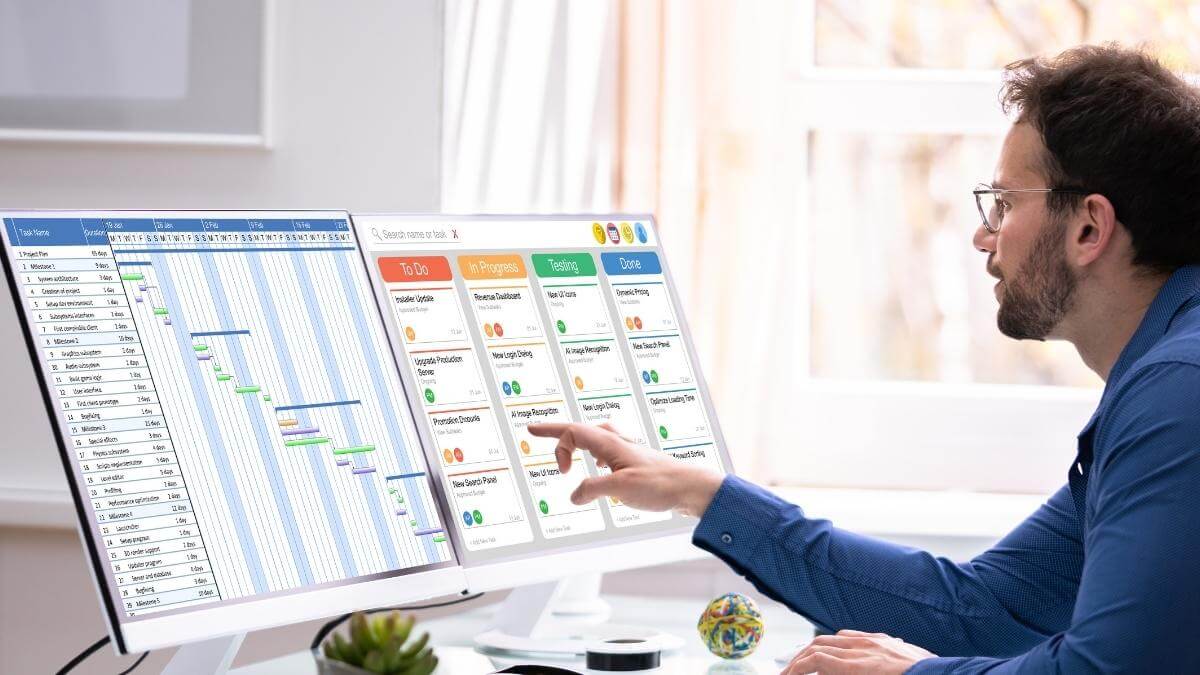




![15 Brainstorming Techniques to Try [+ FREE TEMPLATES]](https://fellow.app/wp-content/uploads/2022/02/brainstorm-techniques.jpg)
